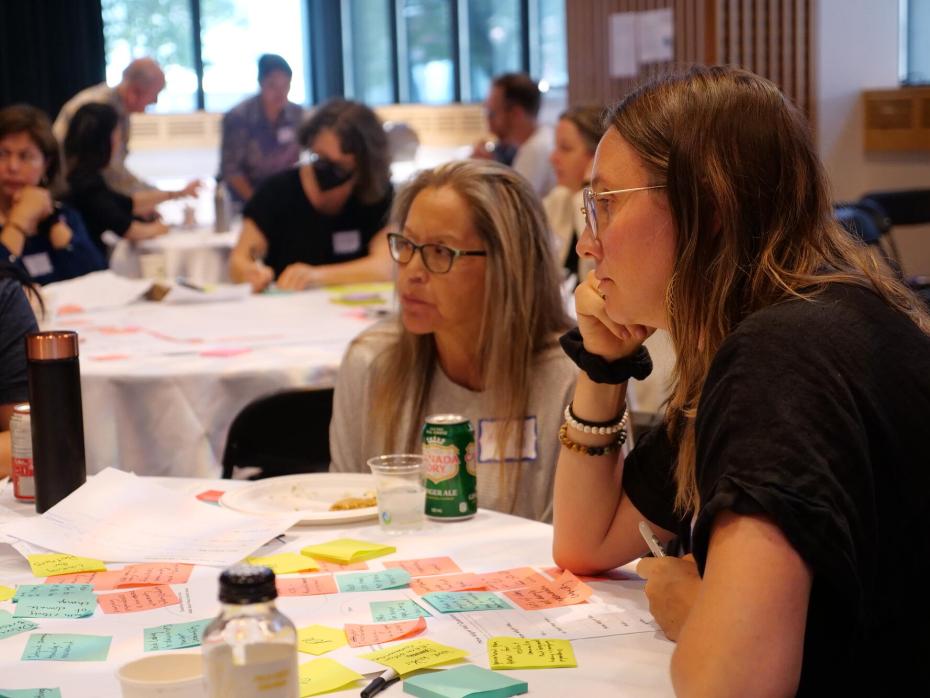Building a university-community partnership that fosters relationships, equity, trust and respect across participants is hard. While aiming to develop a partnership under these conditions is common sense to most, creating them in a cross-sector partnership will not happen organically. Backbone staff working with diverse stakeholders must be intentional in their efforts to nurture and sustain positive relationships, and challenge damaging behaviours, so people with very different worldviews can work together the same space. How often have you sat in or led a meeting, for example, in which you or others are talking about “low socio-economic status”, “deprived and disadvantaged communities” or “priority areas”? There is nothing so exclusive, nor so damaging to trust-building, as making potential partners feel that they are a problem to be fixed.
This article shares our reflections and advice to advance positive community engagement.
Nottingham Trent University’s (NTU) Getting School Ready initiative brings together families, schools, services and the wider community so more children start school ready to thrive. We used a Collective Impact approach to engage partners equitably, and this has had a huge impact, with school leaders commending the initiative’s role in raising their rating from the UK government’s Office for Standards in Education (Ofsted) from “inadequate” in 2018 to “good” in 2023.
The initiative ensures that a broad range of lived experiences shape decision-making. Equitable participation spaces are created by ensuring that all meetings, including steering groups with senior partners, are opened with a moment of sharing and vulnerability. Individuals can talk about what is causing them concern, whether that be the challenge of raising children in poverty or running a complex service with shrinking budgets and rising expectations. It’s from this sharing of lived experience that empathy develops, hierarchies dissolve and genuine co-creation of equitable solutions can be produced.
- A clear vision for university-community partnerships
- Four ways universities can enhance their community impact
- Changing lives through community engagement and outreach
Recognising that complex human challenges can only be resolved by people coming together, removing their preconceptions and truly listening to the lived experience of others has been a real hallmark of this initiative. This process has created opportunities for community members to develop a more critical understanding of their experience, recognise injustices faced by their community and realise their agency in resisting them. They are not living data sources to be extracted from, but rather valuable assets who hold the knowledge and power to bring about change.
To ensure that equity is prioritised, deliberate actions should be taken so community members can participate effectively. This includes finding practical and creative ways to take power out of the equation. During our meetings, we use activities such as crafting or drawing to facilitate discussions, and we ensure community members are never cut short from telling their own stories.
Our meetings are held in community spaces that are accessible by public transport or for attendees with young children. Intentional inclusion goes a long way in helping parents/carers feel that they belong as much as professionals in a space.
We avoid speaking in deficit terms about communities and residents and encourage professional partners to check their language.
A simple way to engage with communities is to communicate well. Commit to a feedback process that ensures all partners are made aware of actions happening after and between meetings. At NTU, we also follow up about concerns individuals have raised in meetings.
Ultimately, there is no better way of building meaningful relationships and cultivating credibility than doing what you say you’ll do, be it a piece of work, making an introduction to someone, forwarding a document, or simply responding to an email or text in a timely fashion. Simple actions are easy to overlook in a busy week. However, their impact on trust building is immeasurable, and so they should be at the top of the priority list.
The adage of trust taking a long time to build and only a moment to destroy is certainly true in the context of cross-sector collaboration. Historical tensions around collaboration and mistrust can quickly come to the fore, especially when working in close partnership. It is important not to overlook this and to respond to tensions or mediate differences as they emerge, if things appear to be going awry.
Although strong relationships, characterised by trust and respect, are the defining success criteria of partnership working, they are hard to create and sustain. It is important to build time into meetings for people to connect as people and get to know one another.
If we are going to be able to think and act differently and achieve different results, we must enable different perspectives, ways of communicating and lived experiences in decision-making and strategic planning. Fundamentally, we must be prepared to change how we work and start to act in new ways if we are serious about delivering equity and driving long-term, sustainable change.
Kimberley Simms is head of widening access and community engagement, and Luke Parmenter is Collective Impact manager, both at Nottingham Trent University.
Nottingham Trent University’s Centre for Student and Community Engagement was shortlisted in the Outstanding Contribution to the Local Community in the Times Higher Education Awards 2025. The full list of nominees can be found here.
If you’d like advice and insight from academics and university staff delivered direct to your inbox each week, sign up for the Campus newsletter.




comment